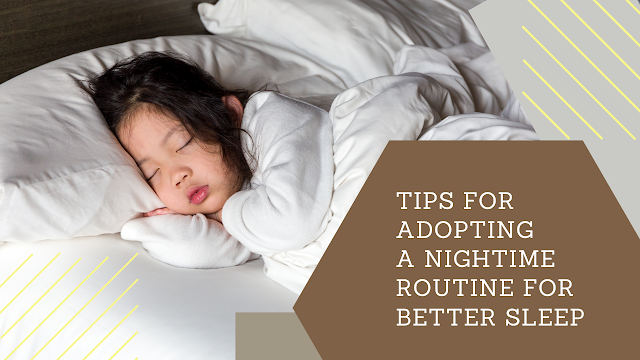4 Tips for Adopting a Nighttime Routine for Better Sleep
Sleep plays such an essential role in our mental and physical well-being.
However, many individuals would likely admit that they aren’t getting enough sleep, or quality sleep; whether that is due to their work schedule, or other factors like anxiety or insomnia. In this article, we will explore the many benefits of sleep for our health, and discuss strategies for developing a nighttime routine that supports better quality sleep.
For more articles and information about sleep, visit BetterHelp.
Why is sleep so essential?
Sleep is often an overlooked part of our routine, however it is central to various systems in our body. Sleep allows our body and mind to restore and rejuvenate. It is tied to our ability to think clearly and concentrate at work or school. Getting a quality night’s rest is linked with enhanced immune function and reduced risk for illness or disease. It is also integral to our mental health, as restful sleep has been shown to have a positive impact on mood and energy levels. Lack of sleep can significantly interfere with our mental state and exacerbate symptoms of anxiety or depression.
It is recommended that adults receive at least seven hours of sleep per night. However, there are many barriers that can get in the way of a restful night’s sleep. One of them may be feeling like it’s difficult for you to fall asleep or it often takes a while to wind down at night. The following section will address how you might alter your nighttime routine in order to promote better sleep.
4 Tips for Developing a Nighttime Routine for Better Sleep
1. Engage in a relaxing activity in the hours leading up to bedtime. This could be anything from taking a shower or bath, to reading a book in bed, listening to calming music, or a meditation practice. While exercise is connected with improved sleep, experts recommend avoiding heavy exercise right before bed.
2. Limit electronics before you try to fall asleep. If you find it difficult to fall asleep, consider your use of electronics in the evening hours. Research has revealed that blue light emitting from electronics impacts the body’s ability to produce melatonin (a sleep hormone). Make an effort to limit TV, computer, tablet, or cell phone use before bed in favor of another activity like reading a book or meditation.
3. Aim to keep a consistent sleep schedule. It can help to try to wake up and go to sleep at around the same time each day. Try setting an alarm for the time you want to be in bed trying to fall asleep each night. Having this consistency may make it easier to fall asleep once your body gets into a rhythm. It can also be helpful to avoid lengthy naps in the afternoon or evening that may interfere with your ability to get to sleep at night.
4. Consider your bedroom environment. Is excessive noise keeping you up at night? You might consider trying earplugs to block out unwanted noise. It is also beneficial to eliminate excess light through utilizing heavy curtains or trying an eye mask. Sleep experts also recommend a slightly cooler room temperature for quality sleep.
Seeking Further Support
If you continue to experience ongoing challenges around getting to sleep or staying asleep, consider reaching out to your doctor in order to discuss these concerns. It is possible that you may have a sleep disorder that requires further attention and support.
#MentalHealth








No comments